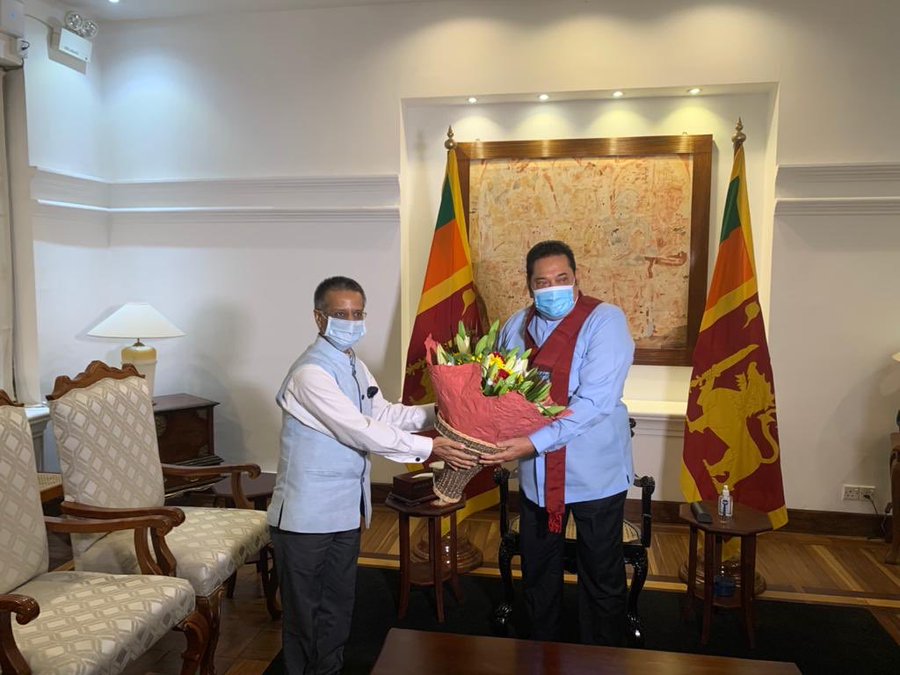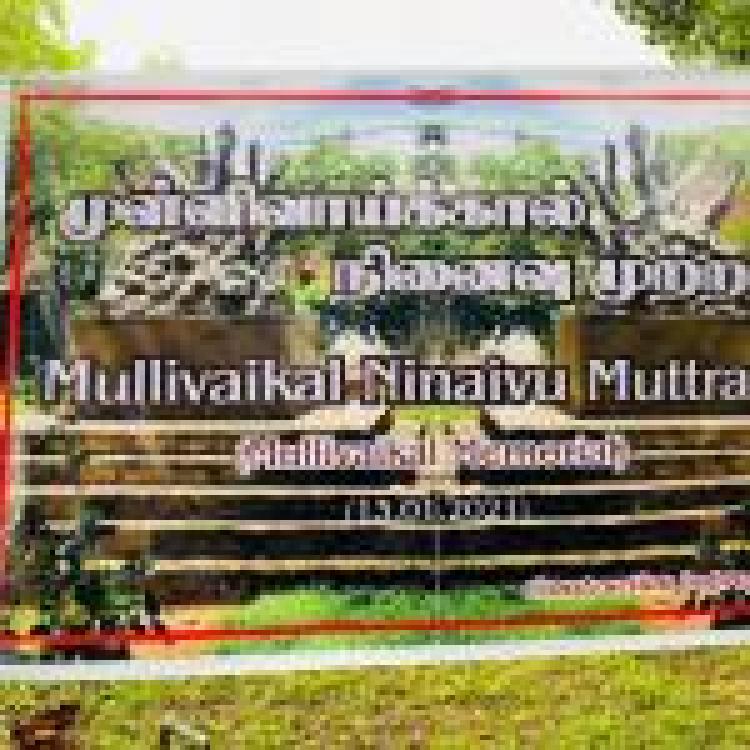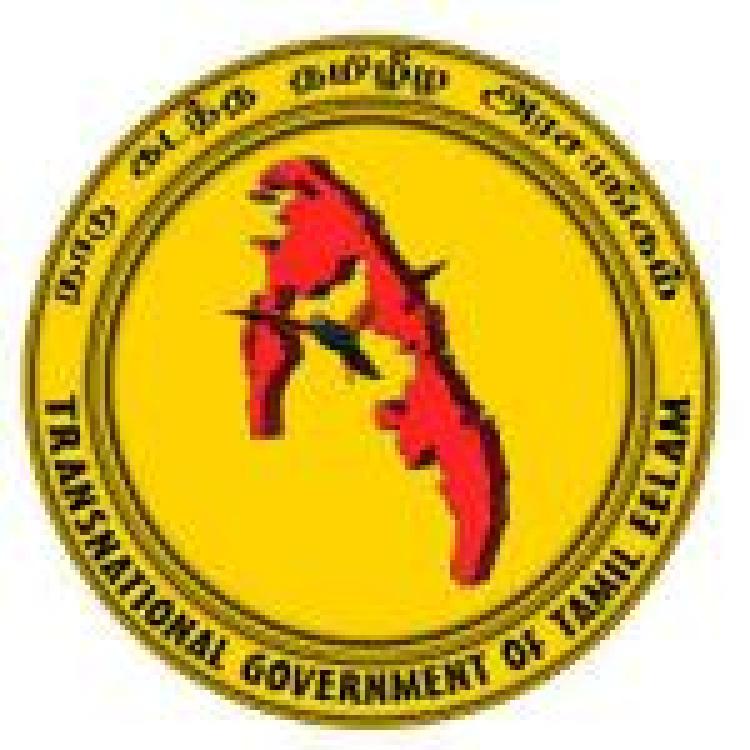
File photograph: Baglay meeting with Rajapaksa last year.
Reports have emerged over how India’s ambassador to Sri Lanka rushed to meet Sri Lanka’s prime minister last week, in an attempt to contain the fallout just hours after authorities destroyed a monument at the University of Jaffna, whilst Sri Lanka’s president was left in the dark over the meeting and decisions made in Colombo.
The Sunday Times reported that as Tamils began protesting against the destruction of the Mullivaikkal monument, built to commemorate the tens of thousands of Tamils killed by Sri Lankan security forces, Indian High Commissioner Gopal Baglay “made desperate efforts” to contact Mahinda Rajapaksa.
Baglay reported “rushed” to Rajapaksa’s residence where he “voiced serious concerns over the demolition”. “He is learnt to have told Premier Rajapaksa that coming as it does just after the visit of Foreign Minister, Dr Subramaniam Jaisahankar, it could lead to protests erupting in the southern Indian state of Tamil Nadu,” the Sunday Times political column added.
“The Indian High Commissioner met the PM [last weekend] and they discussed the Jaffna University memorial matter,” Rajapaksa’s media secretary Rohan Welivita confirmed to The Hindu on Sunday.
According to the Sunday Times, “Rajapaksa went into action promptly”.
By Monday morning, Jaffna University’s Vice Chancellor reversed his position and agreed to rebuild the destroyed monument, after claiming he was under pressure from Sri Lanka’s defence and intelligence services to demolish it. Reconstruction work has since begun.
However, the Sunday Times noted that Sri Lanka’s “Presidential Secretariat was unaware of the event”. It went on to add,
“So much so, on Saturday, the Sunday Times learnt, officials hurriedly telephoned Vice Chanceller Srisatkunarajah to ask “who gave instructions” for the demolition that triggered many other events. “I explained the situation in detail to an official of the President’s office,” Prof. Srisatkunarajah told the Sunday Times.”
“If the matters were not resolved last Monday, one is not wrong in saying that it would have caused greater misconceptions in New Delhi. The argument would have been that the memorial had been removed less than 24 hours after the departure from Colombo of India’s External Affairs Minister Jaishankar. It could have been construed as a rebuff for his urging government leaders to adhere to the 13th Amendment to the Constitution and conduct Provincial Council elections.”
Read more from the Sunday Times here.
Since the move however, Jaffna University students and staff and the wider Tamil community have expressed scepticism over promises to rebuild the destroyed Mullivaikkal monument on campus.




